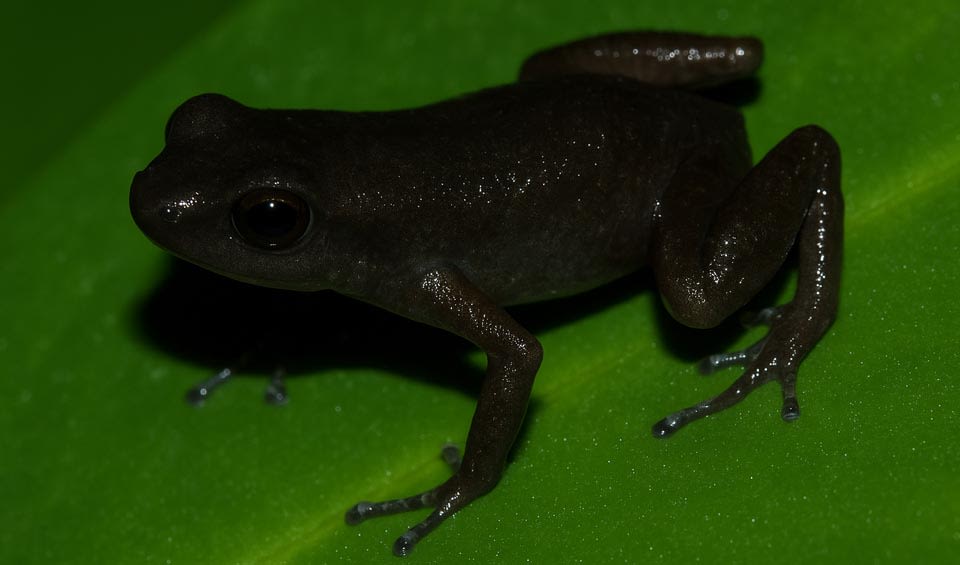Aromobates – Skunk frogs
This amphibian genus contains some of the smelliest frogs on planet!
Native to the Andes of Venezuela and Colombia, it is renowned for its distinctive and unusual adaptations, including a unique defense mechanism and a remarkable contribution to the field of medicine.
Aromobate frogs are known for their vile-smelling skin secretion, released as a defense mechanism when they feel threatened. This secretion contains the same stink-producing compound found in the famously foul anal emissions of skunks, giving them a pungent and repulsive odor. This noxious odor acts as a deterrent against potential predators, deterring them from attempting to prey on these frogs.
Interestingly, despite their unpleasant odor, Aromobates frogs possess a remarkable quality that has garnered significant attention from the scientific community. Their skin secretions contain a wealth of antibacterial substances, making them one of the richest sources of antibacterial compounds in the animal kingdom. This discovery has raised hopes among researchers that these unique chemicals may hold the key to combating antibiotic-resistant bacteria, a growing global health concern. Studying and synthesizing these antibacterial compounds could lead to the development of novel antibiotics and medical treatments, potentially offering solutions to one of the most pressing challenges in modern medicine.
Aromobates frogs inhabit a wide range of habitats in the Andes, with a preference for warm and wet environments. These adaptable frogs have evolved to thrive in various ecological niches within their range, showcasing their ability to endure different conditions.
Species in this genus
Venezuelan skunk frog
So smelly that they will make you pinch your nose and hold your breath


